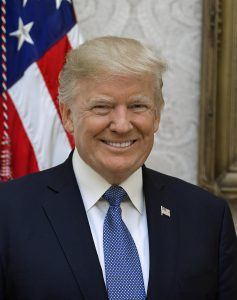Dylan Riley in New Left Review:
 Debates around the politics of Trump and other new-right leaders have led to an explosion of historical analogizing, with the experience of the 1930s looming large. According to much of this commentary, Trump—not to mention Orbán, Kaczynski, Modi, Duterte, Erdoğan—is an authoritarian figure justifiably compared to those of the fascist era. The proponents of this view span the political spectrum, from neoconservative right and liberal mainstream to anarchist insurrectionary. The typical rhetorical device they deploy is to advance and protect the identification of Trump with fascism by way of nominal disclaimers of it. Thus for Timothy Snyder, a Cold War liberal, ‘There are differences’—yet: ‘Trump has made his debt to fascism clear from the beginning. From his initial linkage of immigrants to sexual violence to his continued identification of journalists as “enemies” . . . he has given us every clue we need.’ For Snyder’s Yale colleague, Jason Stanley, ‘I’m not arguing that Trump is a fascist leader, in the sense that he’s ruling as a fascist’—but: ‘as far as his rhetorical strategy goes, it’s very fascist.’ For their fellow liberal Richard Evans, at Cambridge: ‘It’s not the same’—however: ‘Trump is a 21st-century would-be dictator who uses the unprecedented power of social media and the Internet to spread conspiracy theories’—‘worryingly reminiscent of the fascists of the 1920s and 1930s.’
Debates around the politics of Trump and other new-right leaders have led to an explosion of historical analogizing, with the experience of the 1930s looming large. According to much of this commentary, Trump—not to mention Orbán, Kaczynski, Modi, Duterte, Erdoğan—is an authoritarian figure justifiably compared to those of the fascist era. The proponents of this view span the political spectrum, from neoconservative right and liberal mainstream to anarchist insurrectionary. The typical rhetorical device they deploy is to advance and protect the identification of Trump with fascism by way of nominal disclaimers of it. Thus for Timothy Snyder, a Cold War liberal, ‘There are differences’—yet: ‘Trump has made his debt to fascism clear from the beginning. From his initial linkage of immigrants to sexual violence to his continued identification of journalists as “enemies” . . . he has given us every clue we need.’ For Snyder’s Yale colleague, Jason Stanley, ‘I’m not arguing that Trump is a fascist leader, in the sense that he’s ruling as a fascist’—but: ‘as far as his rhetorical strategy goes, it’s very fascist.’ For their fellow liberal Richard Evans, at Cambridge: ‘It’s not the same’—however: ‘Trump is a 21st-century would-be dictator who uses the unprecedented power of social media and the Internet to spread conspiracy theories’—‘worryingly reminiscent of the fascists of the 1920s and 1930s.’
More here.
